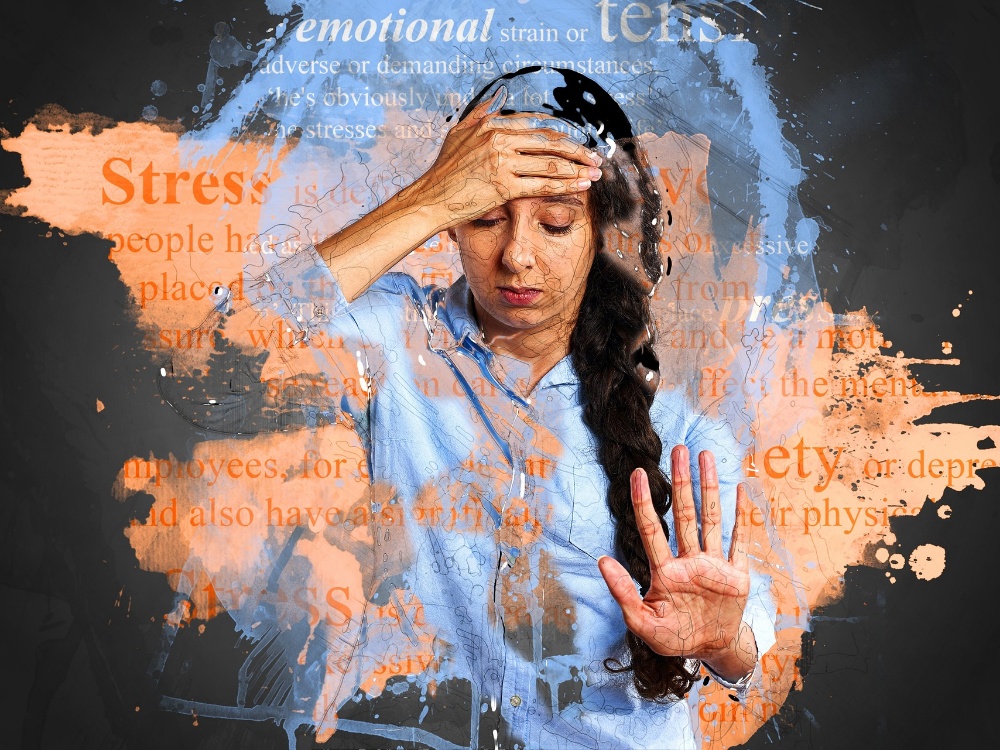Get moving Physical activity of any kind can help relieve stress. Exercise has the potential to be an effective stress reliever even if you are not an athlete or in poor physical condition.
Endorphins and other natural neural chemicals that make you feel good can be increased by physical activity. You can also refocus your mind on the movements of your body through exercise, which can help you feel better and make the problems of the day go away. Think about going for a walk, jogging, gardening, cleaning the house, biking, swimming, weightlifting, or any other activity that gets you moving.
Maintain a healthy diet Maintaining a healthy diet is an essential component of self-care. Whole grains and a variety of fruits and vegetables should be your goal.
Avoid bad habits Some people deal with stress by smoking, eating too much, drinking too much alcohol or caffeine, or using illegal substances. These routines can be bad for your health.
Meditate: During meditation, you narrow your focus and quiet the stream of jumbled thoughts that may be overwhelming you and putting you under stress. Your mental and physical health can both benefit from a sense of calm, peace, and balance that meditation can instill.
When you’re out for a walk, taking the bus to work, or waiting at the doctor’s office, guided meditation, guided imagery, visualization, and other forms of meditation can be practiced at any time. Anywhere you want, you can also try deep breathing.
Laugh more. Even if you have to force a fake laugh through your grumpiness, having a sense of humor can help you feel better, even if it can’t cure all your ailments. Not only does laughing make you feel better mentally, but it also makes positive changes to your body. Laughter increases your stress response and then decreases it. Therefore, you should read some jokes, make jokes, watch a comedy, or hang out with funny friends. Alternately, try laughter yoga.
Connect with others When you’re feeling stressed and irritable, your instinct might be to stay in your own head. Instead, connect with your friends and family and socialize.
Social interaction can help you cope with life’s ups and downs by providing support, distraction, and support. Therefore, go to your church, email a relative, or take a coffee break with a friend.
Have extra time? Volunteering for a charitable organization can help you and others at the same time.
Make your case for yourself You might want to do it all, but you won’t be able to, at least not without incurring costs. Managing your stress and to-do list can be made easier by learning to say no and being willing to delegate.
It may appear that saying yes is an easy way to maintain peace, avoid conflict, and complete the task at hand. However, because your needs and those of your family come first, it may actually cause internal conflict, which can cause stress, rage, resentment, and even the desire to exact revenge. And that is not exactly a response that promotes tranquility.
Try yoga, a popular stress-relieving activity that combines controlled breathing and a series of postures. Yoga combines mental and physical practices to help you achieve mental and physical peace. Yoga can help you unwind and oversee pressure and nervousness.
You can take yoga on your own or sign up for a class; classes are available in most communities. Particularly due to its slower pace and simpler movements, Hatha yoga is an effective stress reliever.
Get enough sleep Stress can make it difficult to fall asleep. Sleep can suffer when you have too much to do and too much to think about. However, sleep is when your body and mind recharge.
Additionally, the quality and quantity of your sleep can have an impact on your mood, level of energy, concentration, and overall performance. If you have trouble sleeping, make sure you have a quiet, soothing bedtime routine, turn off the clocks, and stick to a regular schedule.










